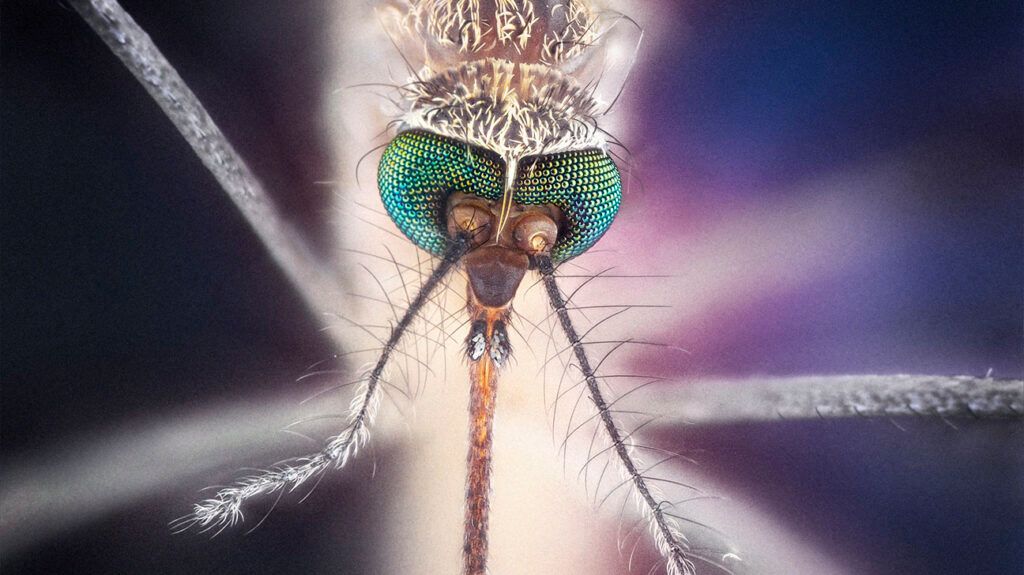Both sickle cell disease (SCD) and malaria are potentially dangerous conditions that affect red blood cells (RBCs). While certain forms of SCD may increase the risk of severe complications, one type may instead offer protection against malaria.
Malaria is a life threatening mosquito-borne blood disease. It occurs following a bite from an infected mosquito carrying a parasite known as Plasmodium. This parasite multiplies first in the cells of the liver and again within RBCs, subsequently destroying them. This destruction of RBCs results in a number of complications, such as anemia, jaundice, fever, and organ damage.
Sickle cell disease (SCD) describes a group of blood conditions that affect hemoglobin in RBCs. Hemoglobin helps RBCs deliver oxygen throughout the body. SCD causes changes in the hemoglobin molecule that can affect the shape and function of RBCs. While this condition can negatively affect RBCs and cause potentially life changing symptoms, certain types of SCD may offer protection against malaria.

SCD refers to a group of inherited conditions that
Healthy RBCs have a round shape and can easily move through blood vessels to help deliver oxygen. If someone has SCD, the RBCs may become hard or sticky and develop a sickle shape due to problems with hemoglobin. These sickle-shaped RBCs often die early or get stuck in blood vessels and clog blood flow.
Read on to learn more about healthy RBCs versus sickle cell RBCs.
The
As such, certain biological characteristics that can affect RBCs
Sickle cell trait (SCT) describes when a person inherits one gene variation and one functional gene for hemoglobin. People with SCT do not usually have signs of SCD or experience any symptoms, but in rare cases, they may still develop health problems.
According to the
This is likely due to the Plasmodium parasites requiring RBCs to multiply and people with SCT possessing RBCs that
Several mechanisms may provide individuals living with SCT protection against Plasmodium parasites. The RBCs may provide a hostile environment for Plasmodium parasites due to low oxygen levels. As this slows the growth of the parasites, it may allow more time for the immune system to react and destroy the RBCs with the parasitic infection.
The same mechanism that offers protection with SCT may also work in those living with other types of SCD. However, the risks of living with SCD typically outweigh this advantage.
For example, sickle cell anemia (SCA) is usually the
Additionally, splenomegaly is a common complication in those living with SCD. Splenomegaly refers to an enlargement of the spleen, which can prevent it from fighting infections as well as it should. Splenomegaly can increase a person’s susceptibility to some infections,
Hemoglobinopathies describe a type of RBC disorder that affects the production or structure of hemoglobin, such as SCD.
Another type of hemoglobinopathy is thalassemia. This is a group of genetic conditions that can cause a person to have fewer healthy RBCs. Thalassemia is also
A
At present, there are
For those visiting areas where malaria is widespread, the CDC notes that preventing mosquito bites and taking malaria medication can help prevent malaria.
The CDC recommends the following practices to help
- using an insect repellent with Environmental Protection Agency (EPA) approval
- wearing loose-fitting, long-sleeve shirts and pants
- treating clothing and gear with 0.5% permethrin, or buying permethrin-treated clothing and gear
- keeping windows and doors closed or covered with screens
- repairing broken screening
- emptying standing water at least once a week to prevent mosquitos from laying eggs
The CDC also recommends consulting a doctor about which malaria medication they should take. Depending on the type, people may need to take the medication before traveling to an area where malaria is widespread, as well as during and after the trip. These medications
- atovaquone/proguanil
- chloroquine
- doxycycline
- mefloquine
- primaquine
Both sickle cell disease and malaria can affect red blood cells. SCD is an inheritable condition that affects the shape and function of RBCs, while malaria is an infectious condition where Plasmodium parasites replicate within RBCs.
Over time, in areas where malaria is or was more prevalent, sickle cell trait became more common. SCT refers to when a person only inherits one gene for SCD, meaning they typically do not develop any symptoms of the condition.
SCT can offer protection against malaria, as people with this condition have RBCs that make it difficult for the Plasmodium parasites to multiply.
Some types of SCD, as well as other conditions that affect hemoglobin, may also offer some protection against malaria. However, the risks and complications of these conditions typically outweigh this benefit.
Regardless of whether a person has SCT or another condition that may offer protection, it is advisable to follow malaria prevention strategies if they live or travel in an area with high occurrences of malaria.
